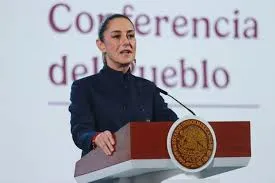
Impact of Mexico’s Open Door Policy for Non-Mexican Deportees
Mexico has indicated a willingness to accept non-Mexican migrants deported from the United States, marking a shift from its earlier stance. President Claudia Sheinbaum stated that in cases where the U.S. cannot return migrants directly to their countries of origin, Mexico may receive them.
This development comes as U.S. President-elect Donald Trump plans to implement mass deportations of undocumented migrants, including those from countries other than Mexico.
Initially, President Sheinbaum had expressed intentions to negotiate with the incoming U.S. administration to limit the number of third-country deportees Mexico would accept. However, recent statements suggest a more accommodating approach, acknowledging the complexities of direct repatriation to migrants’ home countries.
This policy shift has significant implications for Mexico’s border cities, which may experience increased pressure on resources and infrastructure due to a potential influx of deported migrants.
The Mexican government is preparing to manage these challenges and is expected to engage in discussions with U.S. officials to establish protocols for handling deportations under the new administration.
The situation remains dynamic, with both nations poised to negotiate terms that address security, humanitarian concerns, and the logistical aspects of large-scale deportations.
Observers are closely monitoring how these developments will affect U.S.-Mexico relations and the broader discourse on immigration policy in the region.
For more insights into this development, you can watch the following news report: